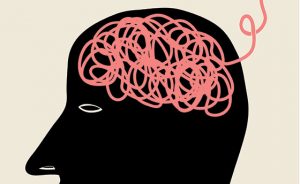 This issue of Jlife is focusing on health, so it is appropriate to incorporate mental health, as most of us may still be reeling from last month’s terrorist attack in San Bernadino.
This issue of Jlife is focusing on health, so it is appropriate to incorporate mental health, as most of us may still be reeling from last month’s terrorist attack in San Bernadino.
It is always a terrible tragedy anytime lives are taken senselessly. But that tragedy is exacerbated when it is coupled with terror and chaos, such as it was last month. The feelings of helplessness, fear, and trepidation can be overwhelming at the very least. Sometimes they create such panic and anxiety it impacts our ability to function. In the world of the helping profession, this is known as “vicarious trauma.”
The technical definition of vicarious trauma is “a transformation in the self of a trauma worker or helper that results from empathic engagement with traumatized clients and their reports of traumatic experiences.” In other words, anyone with the ability to empathize, had difficulty seeing last month’s event in the media. And, while most of us were not exposed to last month’s shooting directly, many of us experienced a version of vicarious trauma. Sleep disturbances, difficulty concentrating, a need to talk about the events, (seemingly) irrational fear, and generalized symptoms of anxiety are all indicators that vicarious trauma may have occurred around the events.
Like France weeks before, we too became victims of terror. Suddenly and unexpectedly, we Californians were thrust into a formidable understanding of what our brothers and sisters in Israel go through, on an almost daily basis. This being established, what do we do?
Vicarious trauma is often neglected and overlooked, as those who are not directly impacted by tragedy, may carry survivor’s guilt or not feel justified in being traumatized. But, left unchecked, it can lead to debilitating symptoms of anxiety, aggression, and re-experiencing or oversensitivity to trauma. We become walking open wounds, existing, but barely functioning. It is important to recognize the signs and symptoms and take action to mitigate their impact.
• Do not be afraid to talk about your feelings
• Pay attention to sleeping and eating
patterns
• Note any changes in your mood
• Do not be afraid to express emotions—we are living in difficult times and certain emotions are appropriate
•Take even better care of your mental and physical health:
· Yoga
· Meditation
· Attending services
· Speak to a professional
· Make time for “down” time
• Get enough rest and sleep
• Develop a safety plan, as this provides a sense of being in charge, while lessening feelings of helplessness
It is also important to understand that lives were lost and, as a result, many lives were irreversibly impacted by this act of terror. As a psychologist I have seen first-hand the impact of tragedy on individuals, families, and the community—it is important to recognize what happened, and process any feelings or concerns we have in order to heal.
I hope this month’s issue can be a part of the process to find respite and healing in our community.
Lisa Grajewski, Psy.D. is a licensed psychologist and adjunct Assistant Professor at The Chicago School of Professional Psychology. She has been a contributing writer for Jlife magazine since 2004.







And what of the collective trauma that has been imposed on the Palestinian people?